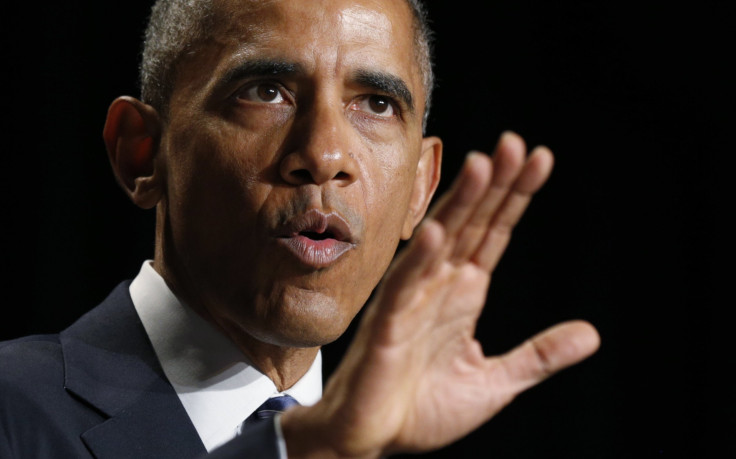Obama's Draft Text Of Authorization To Use Military Force Calls ISIS 'Threat To US National Security'

President Barack Obama sent Congress on Wednesday a draft of the new Authorization to use Military Force (AUMF) requesting updated powers to wage war against the Islamic State group and other terrorist organizations.
The request, which specifically asks for permission to use force against the “Islamic State of Iraq and the Levant” for no more than three years, will now face debate and scrutiny from members of Congress, who are already divided on the issue of ground troops.
In a letter to lawmakers accompanying the draft text, Obama called the Islamic State group, also known as ISIS, "a threat ... to U.S. national security" and said that the AUMF would authorize “ground combat operations in other, more limited circumstances, such as rescue operations involving U.S. or coalition personnel or the use of special operations forces to take military action against ISIL leadership.”
The AUMF “would also authorize the use of U.S. forces in situations where ground combat operations are not expected” and use “intelligence collection and sharing, missions to enable kinetic strikes,” a euphemism for airstrikes, while offering “advice and assistance to partner forces.”
While the request is likely to change as it passes through Congress, Obama's letter talks specifically about a wider role for special forces -- small teams of crack troops -- while the draft request says there will be no permission for “enduring offensive ground combat operations,” allaying political and public fears of that the fight against ISIS (or ISIL, as the White House calls the group) would turn into a protracted ground war in Iraq and Syria.
However, not all are convinced.
The request has exposed a divide among members of Congress in both parties, with some seeking more restrictions on U.S. ground troops, while others want fewer.
Speaking with CNN in Washington on Wednesday, Democratic Rep. Adam Schiff of California said that the request to combat ISIS was “long overdue” and that the current language on ground troops “should not be written so broadly,” fearing that it could lead to an eventual occupation.
Sen. Martin Heinrich, D-N.M., said he too had “serious concerns” about the ground troops language. “It’s a little too broad,” Heinrich said in an interview with Politico on Tuesday. “I don’t think that’s their intention, but I think there’s a potential for abuse there that I’d very much like to see narrowed.”
John McCain, R-Ariz., who heads the Senate Armed Services Committee, told Politico that banning large ground troop operations would be “unacceptable,” whereas McCain’s closest partner on national security, Republican Sen. Lindsay Graham of South Carolina, said he didn’t have a problem with the scope of the AUMF as drafted.
“The language ‘no enduring offensive capabilities’ is fine with me,” said Graham.
Obama's draft copy will now face debate and likely amendments before a new AUMF goes to Congress for a vote.
© Copyright IBTimes 2024. All rights reserved.






















